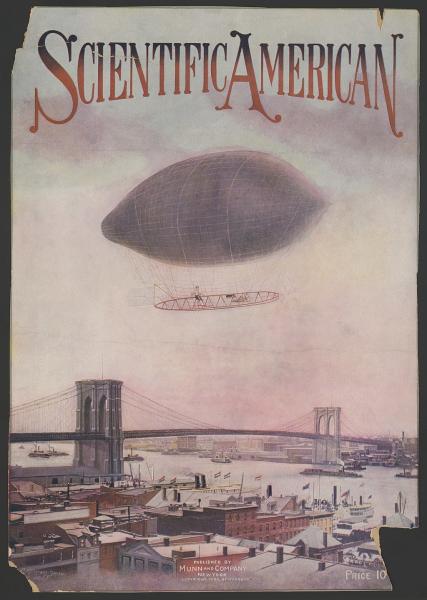Scientific American (SciAm) set social media on fire this week by endorsing Kamala Harris for president in the upcoming November election. “Kamala Harris has plans to improve health, boost the economy, and mitigate climate change. Donald Trump has threats and a dangerous record,” the once-respected magazine declared on September 16.
Several high-profile scientists blasted SciAm for once again endorsing the Democratic nominee for president. “A science magazine should not be endorsing presidents,” evolutionary biologist Colin Wright tweeted. “This is why you have lost all credibility. And yes, I'd be equally critical if you had endorsed Trump.” Behavioral scientist Gad Saad was less gentle: “Authoritarian Leftist partisanship has hijacked everything: academia, science, journalism, medicine, business, law, entertainment, culture, Justice system, etc.”
Several other influential academics were equally critical of SciAm’s endorsement on the grounds that it would further undermine the public’s trust in science. They're correct, but we’re long past the point of pressuring science institutions to revert to ideological neutrality. The only real solution is to allow them to engage in naked partisan advocacy until they erode their dwindling credibility with Americans. After that, we can begin replacing them with credible institutions that actually advance science.
Science™ isn’t worth saving
The unfortunate reality is that mainstream science–the existing cohort of academic journals, universities, popular publications, and regulatory agencies–is ideologically corrupt to the core. Scientific American’s endorsement of Harris is a clear indicator of this devolution, but there are many others worth highlighting:
-
Academic journals are chock-full of fraudulent research; the extent of the scandal is only now coming to light as thousands of peer-reviewed studies are retracted by academic publishers desperately trying to maintain their credibility (and profitability). One major publisher has shuttered 19 of its journals just this year.
-
The Pentagon deliberately spreads anti-vaccine messaging in foreign countries to depress the uptake of COVID shots developed by America’s geopolitical rivals.
-
CDC, the leading infectious disease agency in the world, believes that men can breastfeed.
-
The American Academy of Pediatrics endorses “gender-affirming care” in healthy children, bucking the growing global consensus of health professionals.
-
Bowing to political pressure, the FDA has all but banned low-risk nicotine products that could help millions of adult smokers quit cigarettes.
-
Meanwhile, taxpayer-funded agencies and researchers endorse the distribution of heroin and other illicit substances to drug addicts as a method of “harm reduction.”
The examples of major scientific institutions promoting demonstrable nonsense go on for days. We desperately need to bring an end to this madness, and the solution lurks behind Scientific American’s foolhardy endorsement of another presidential candidate.
Americans hate ideological "science"
A majority of Americans across the political spectrum loathe scientific and public health institutions that wade into the culture wars. They equally despise the media—that army of reporters and “fact-checkers” which foolishly amplifies nonsense on almost every public health topic. Our archives are full of examples. Remember when SciAm reported that vegetables had morphed into toxic, sugary snacks?
This growing intolerance for academia and the media is significant because the public invests billions of dollars every year in America’s multitude of scientific endeavors. The research that academic journals publish is funded largely by taxpayers, who also prop up the universities that employ most academic scientists. The same is true of executive branch public health and research institutions.
The science community is playing a dangerous game by staking out politicized stances on so many issues. Researchers and public health bureaucrats who flippantly disregard the concerns of taxpayers and voters might find themselves with far less funding and authority to operate. That’s because Congress, federal courts, and state governments will clamp down on science institutions if incentivized to do so.
Indeed just two months ago, the US Supreme Court stripped federal public health agencies of a key legal justification they’ve used to expand their regulatory authority for decades. This spring, Congress cut the National Science Foundation’s (NSF) budget by more than $6 billion as part of a plan to avoid defaulting on the federal debt, leaving many researchers “shocked and disappointed.” Tone deaf as always, Scientific American helpfully provided examples of state governments restricting the authority of local public health agencies that implemented harsh COVID restrictions.
Rolling back our radicalized institutions doesn’t mean we should go without the services they are supposed to provide. And there are some promising alternatives we could put in their place. Academic journals that publish fraudulent research and ideological drivel masquerading as scholarship could be defunded and replaced with preprint servers, quality open-access journals, and peer-review platforms like PubPeer.
Private funding sources, previously the only support for science, could finance worthy projects as additional research funding is cut from the federal budget. Historically, this arrangement yielded incredible scientific and economic benefits. Government agencies could focus on practical matters like evaluating the safety of drugs and combating infectious diseases, instead of wasting your money on fraudulent studies.
Actions have consequences
The takeaway, then, is quite simple: the science community should be as partisan as it likes. Keep endorsing political candidates. Keep pretending that biological sex “exists on a spectrum.” Insist that schools “Teach Indigenous knowledge alongside science.” Tell the public that science is actually a platform to advance bizarre partisan causes. Say it loudly and say it proudly.
Just remember that your political campaigning could have serious consequences as the public's faith in you continues to decline. When your grant money dries up, your journal shuts down, or a federal court guts your agency, don’t be “shocked and disappointed,” because you were warned time and again to stay out of politics. But you didn’t listen.




